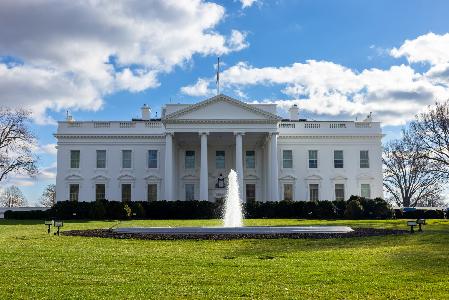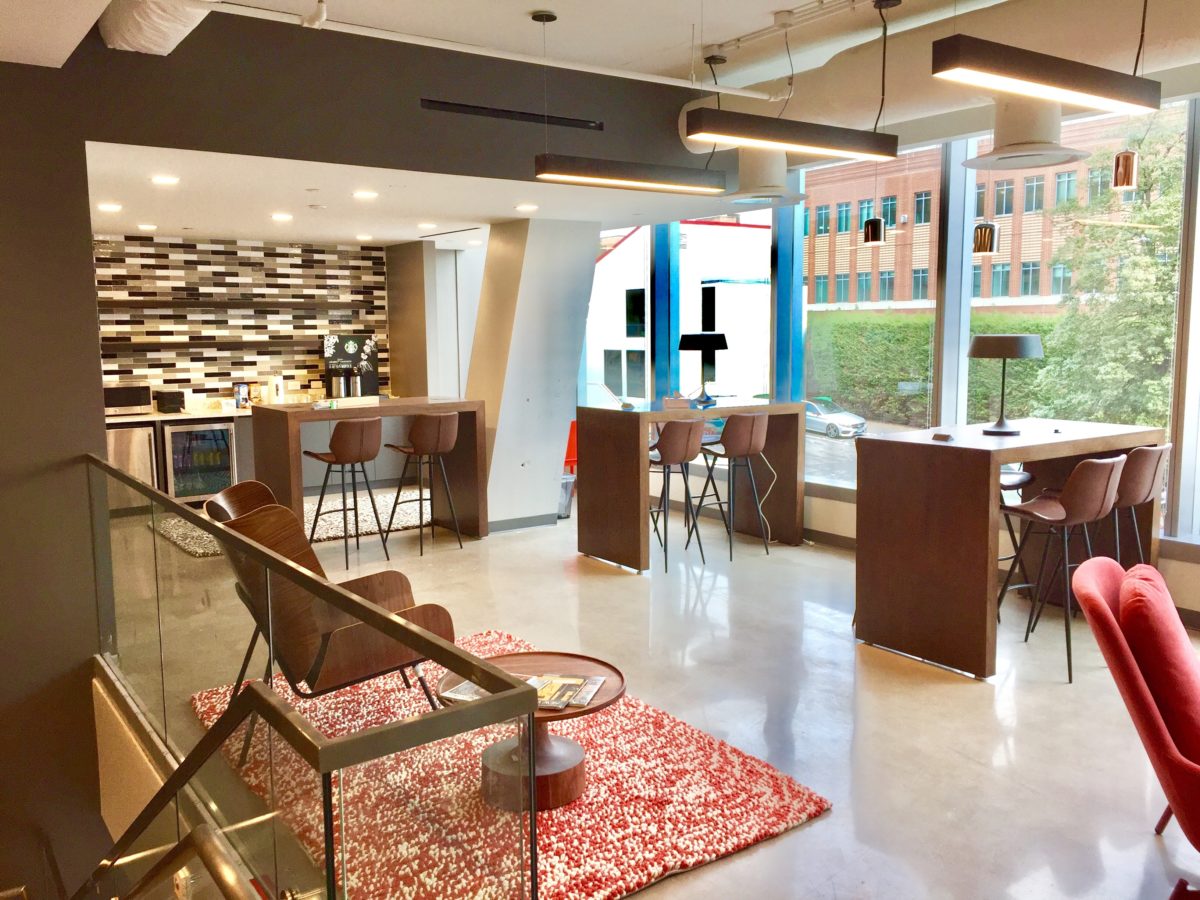With the official opening of its Bethesda location this week, Serendipity Labs is joining the (robust and seemingly always growing) D.C.-area coworking scene.
Serendipity Labs is a national chain, headquartered in Rye, N.Y. It provides, as CEO John Arenas put it, “upscale membership-based work spaces.” The 19,000-square-foot Bethesda location is its sixth space, but Arenas told Technical.ly the company has around 100 more committed to development. If that seems like tremendous, accelerated growth for a company founded in 2013, you’re right. But it’s all part of Serendipity’s strategy.
See, in contrast to the WeWorks of the world, which have to move significant resources (like staff, for one) into each new city, Serendipity uses a franchise model (it’s a model similar to Philadelphia’s Benjamin’s Desk). Generally, Arenas said, Serendipity “seeds” a given region with a company-run space, before bringing on partners (often hospitality operators like those in the hotel industry) to open additional locations. Each franchisee, Arenas said, signs on to open five to 10 locations in their market.
This potential to have hundreds of spaces under the Serendipity label is important because of the kind of clients Arenas wants to attract — bigger companies with employees who need to be flexible, mobile or remote in both urban and suburban areas. According to the company, around 45 percent of Serendipity’s membership is made up of employees from “established” companies.
“We’re trying to create that coverage map,” Arenas said.
Arenas, who grew up in Bethesda and says he’s been involved in thinking about the future of office space for 25 years, told Technical.ly that he looked at the coworking market and saw a breadth of options for the so-called creative class. He noticed, however, that professionals outside of this definition were being underserved — hence the Serendipity Labs model.
Asked whether he thinks the coworking landscape is getting crowded, Arenas said he’s “optimistic” about the future. “There’s room for everybody,” he said. Just as there are many different kinds of hotels or coffee shops, in the future Arenas sees, there will there be many different kinds of coworking.
Before you go...
Please consider supporting Technical.ly to keep our independent journalism strong. Unlike most business-focused media outlets, we don’t have a paywall. Instead, we count on your personal and organizational support.
3 ways to support our work:- Contribute to the Journalism Fund. Charitable giving ensures our information remains free and accessible for residents to discover workforce programs and entrepreneurship pathways. This includes philanthropic grants and individual tax-deductible donations from readers like you.
- Use our Preferred Partners. Our directory of vetted providers offers high-quality recommendations for services our readers need, and each referral supports our journalism.
- Use our services. If you need entrepreneurs and tech leaders to buy your services, are seeking technologists to hire or want more professionals to know about your ecosystem, Technical.ly has the biggest and most engaged audience in the mid-Atlantic. We help companies tell their stories and answer big questions to meet and serve our community.
Join our growing Slack community
Join 5,000 tech professionals and entrepreneurs in our community Slack today!

This Week in Jobs: Fall from the coconut tree and check out these 22 career opportunities

Gen Z pivots to gig jobs instead of full-time work: Who is that good for?

Advanced manufacturing can transform communities — when done right


